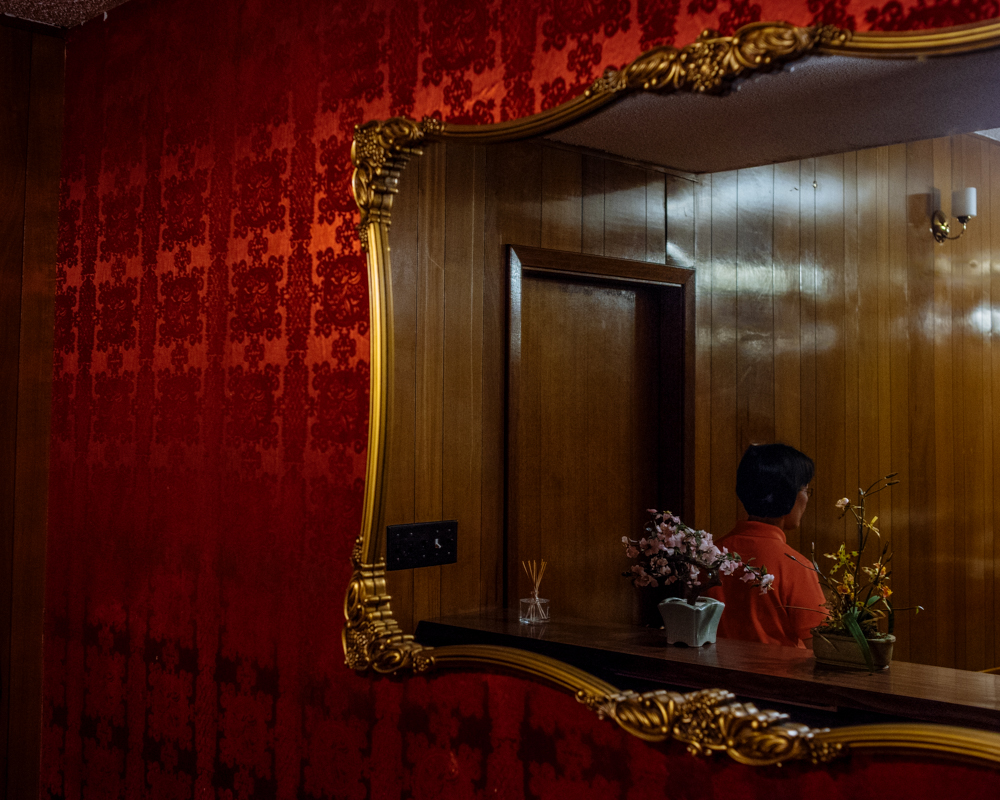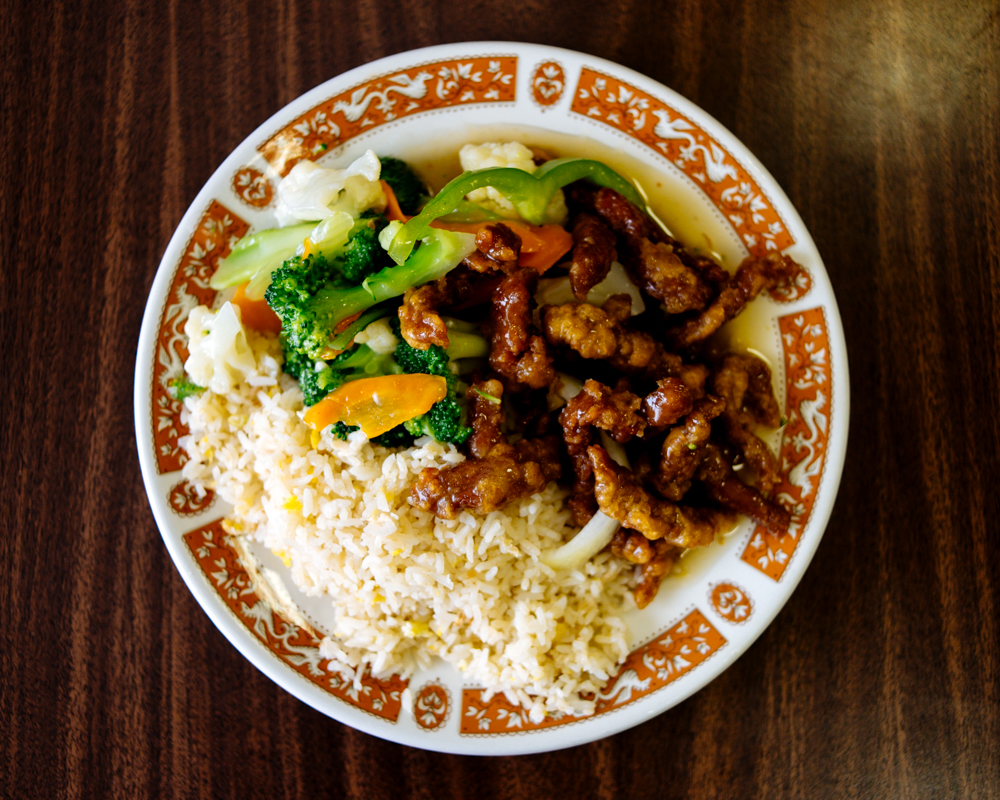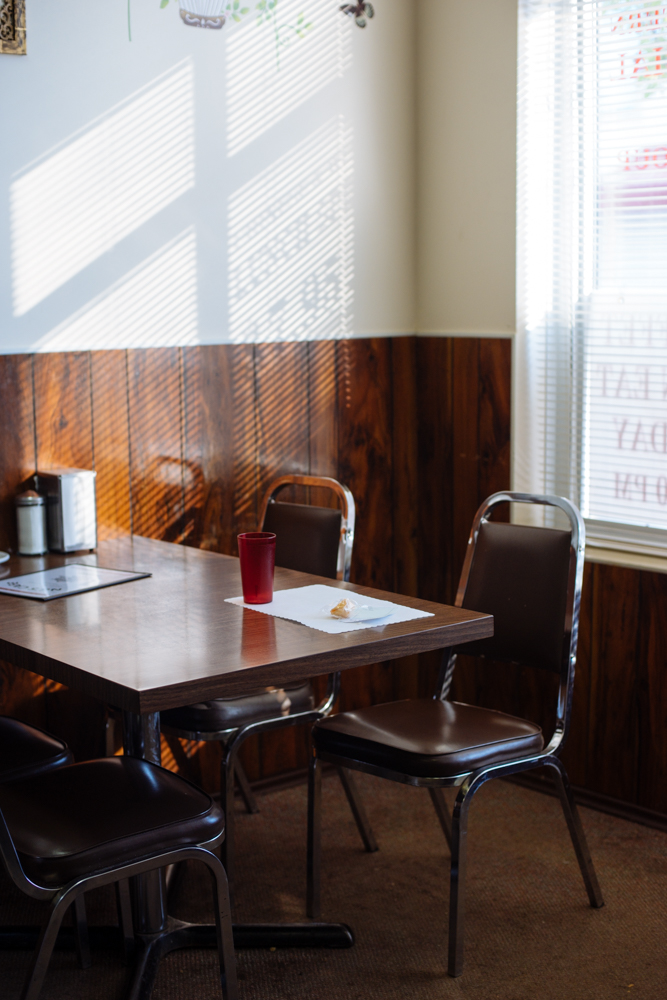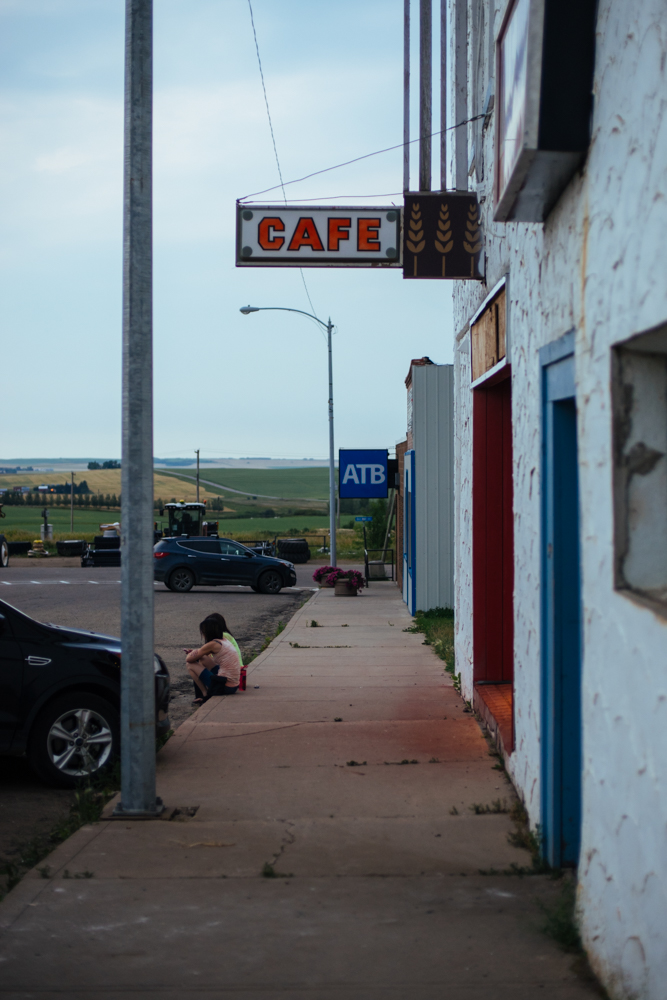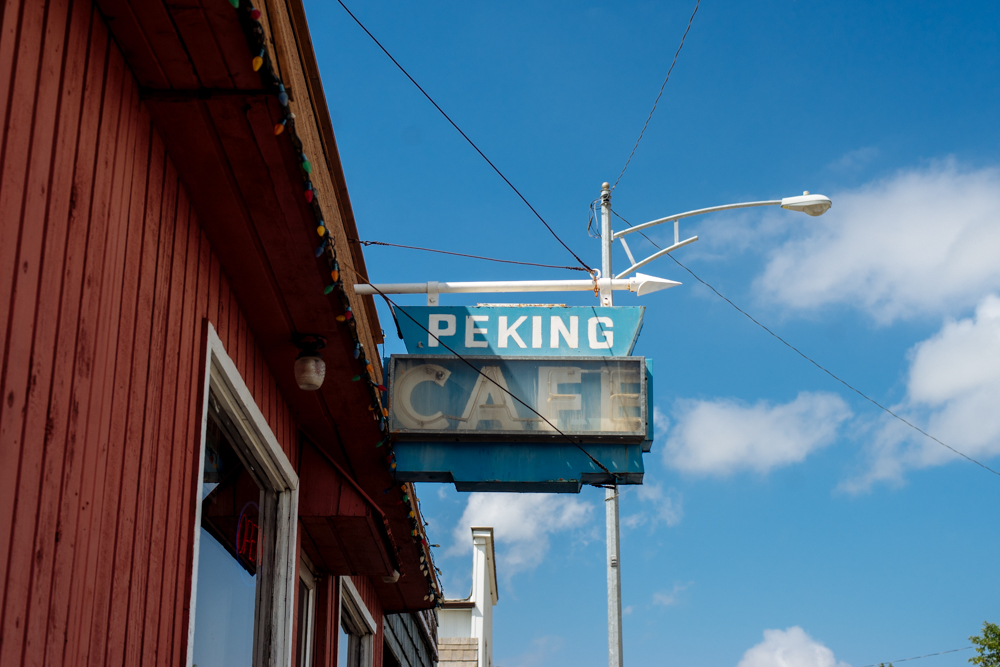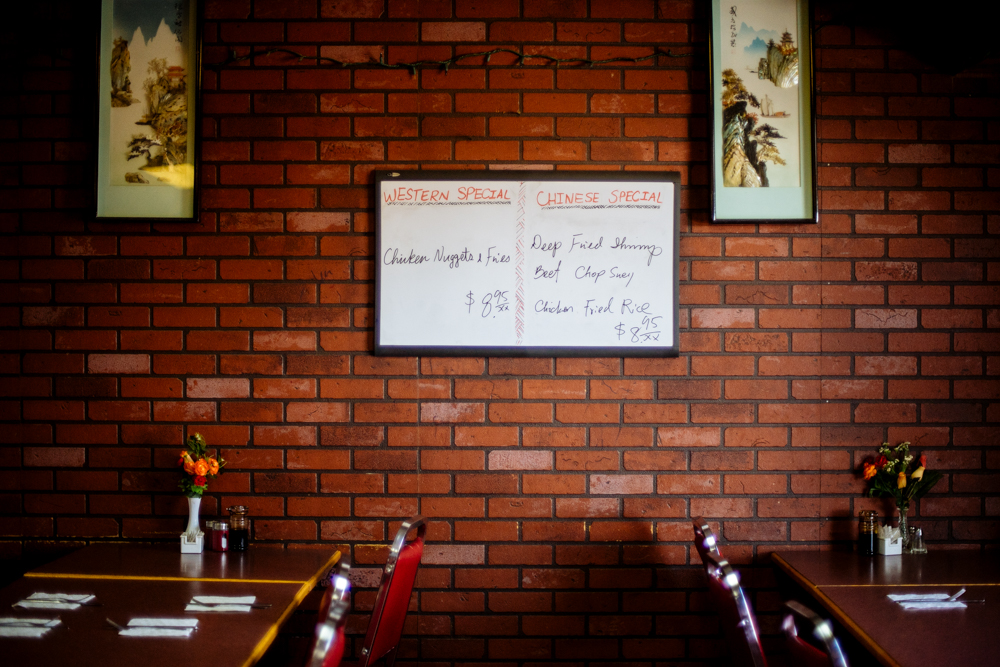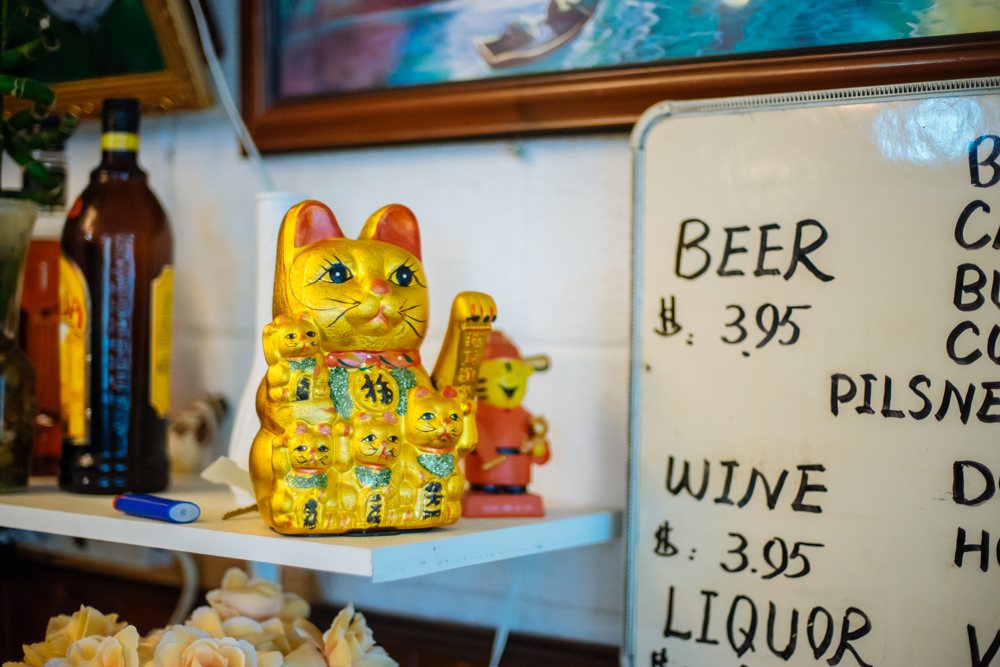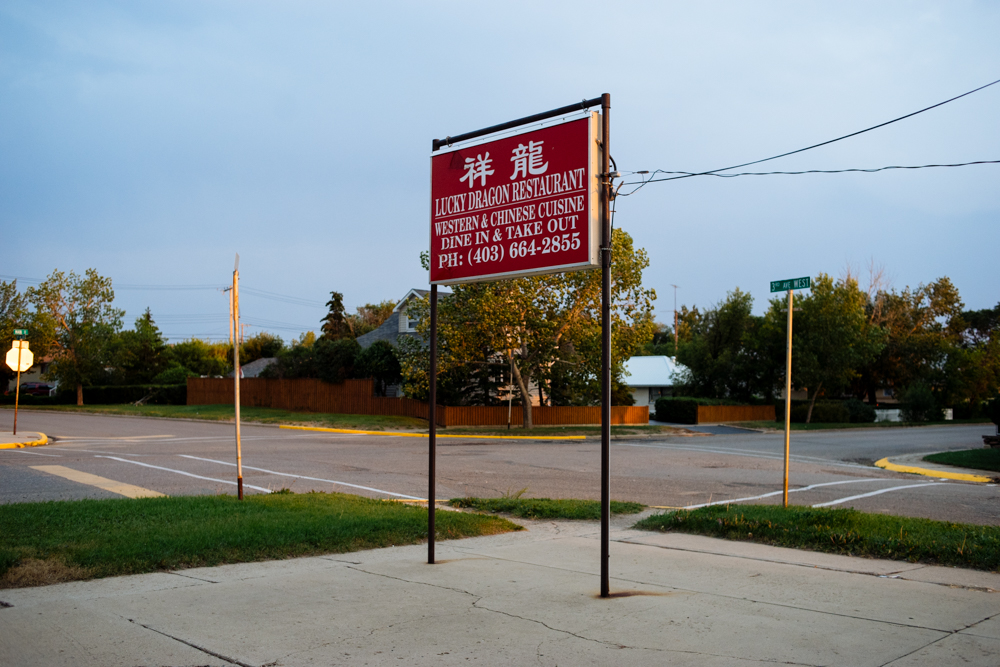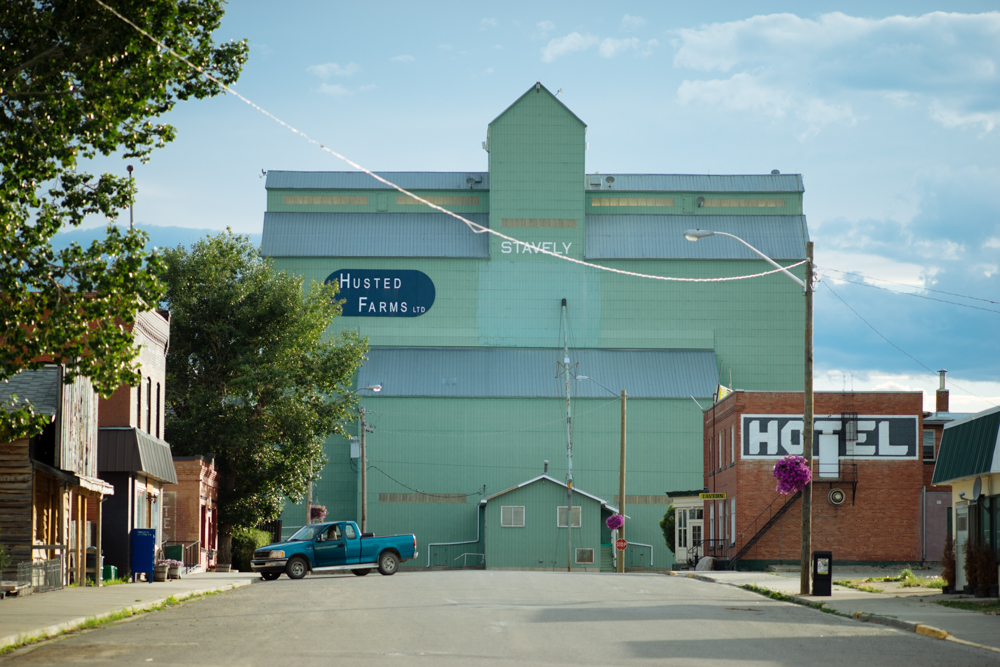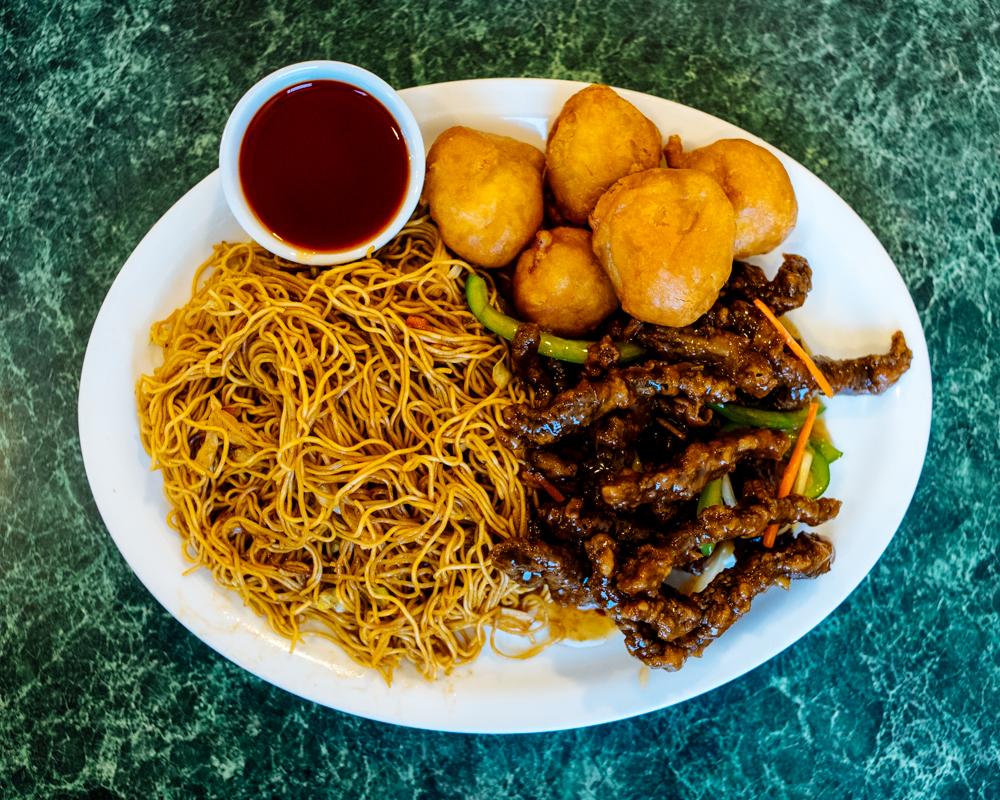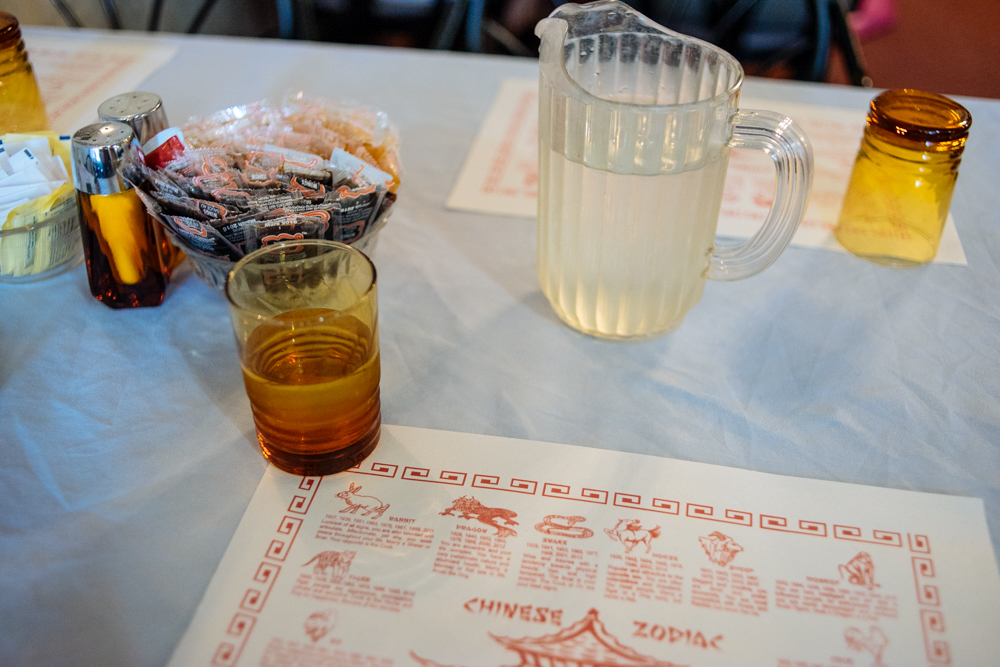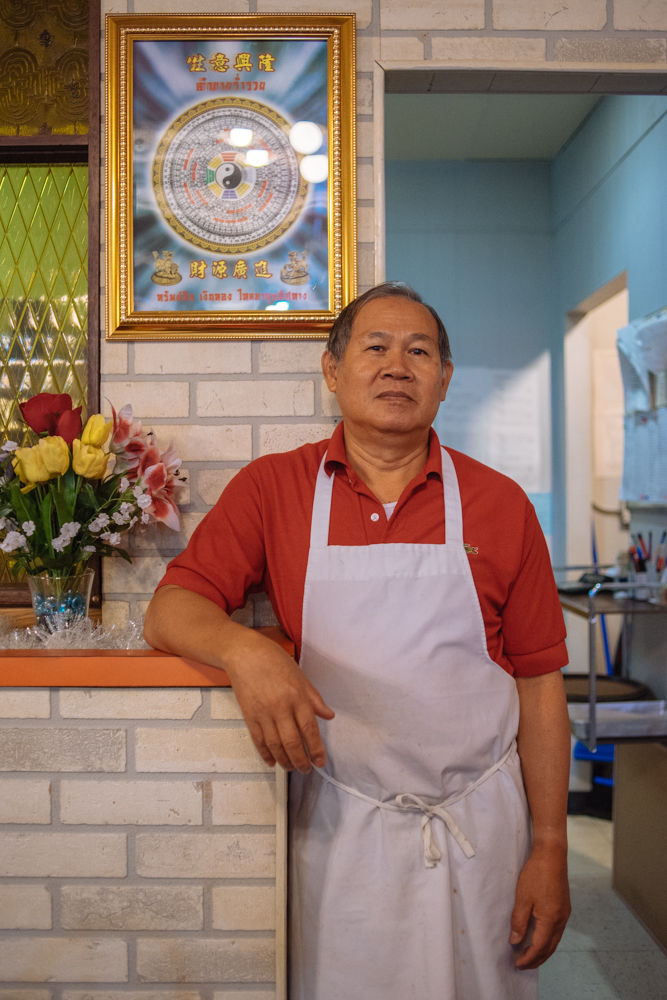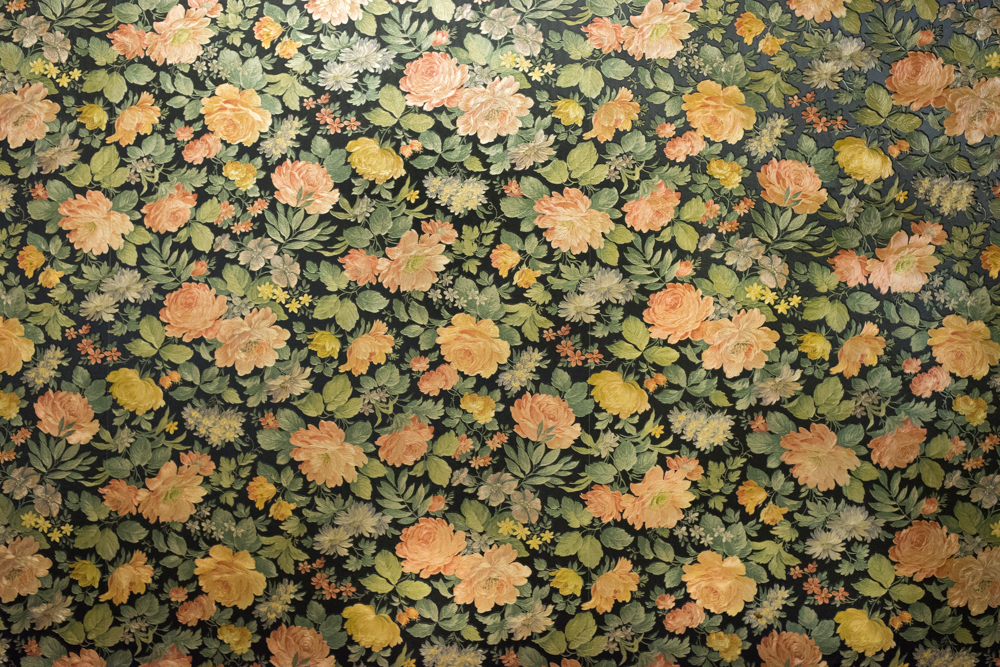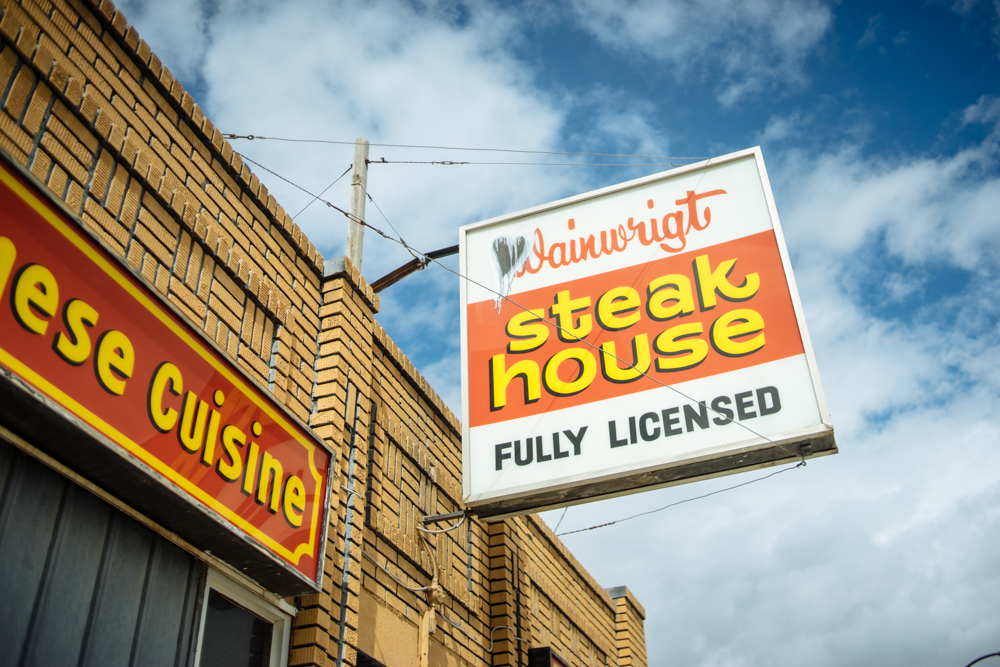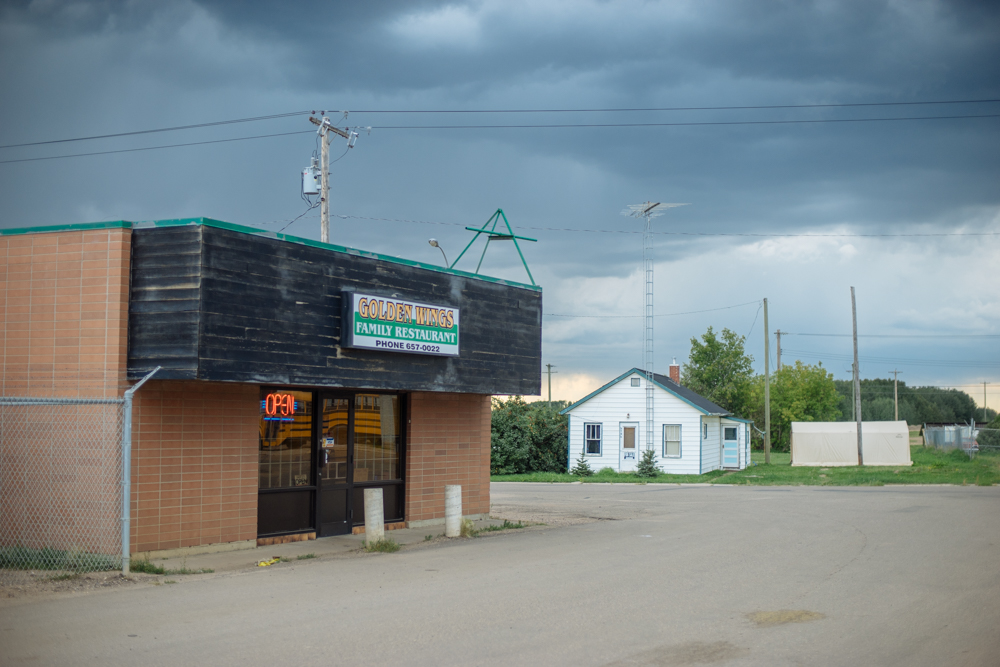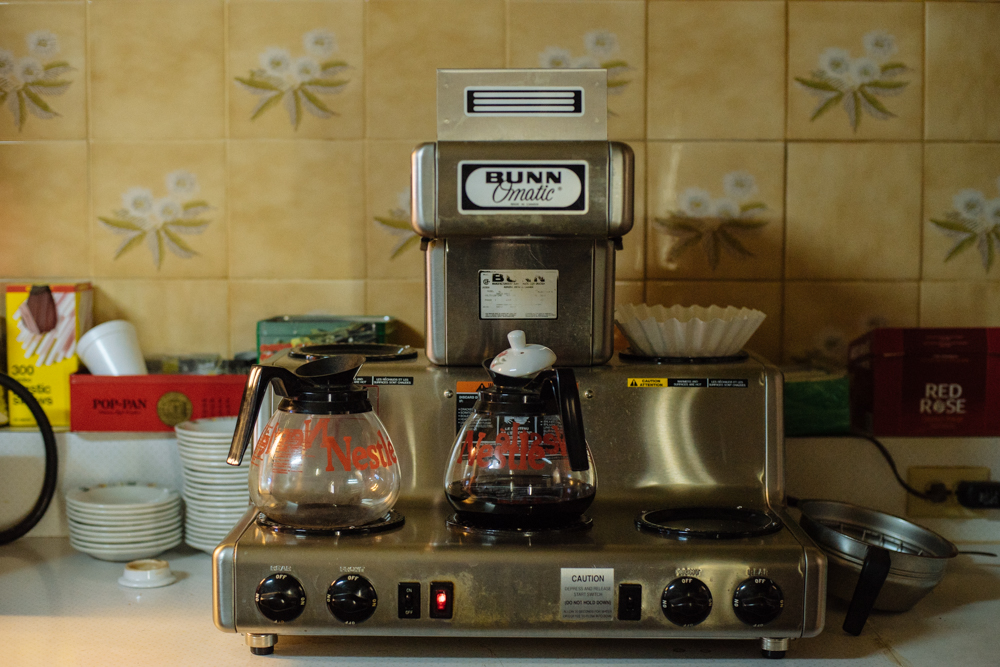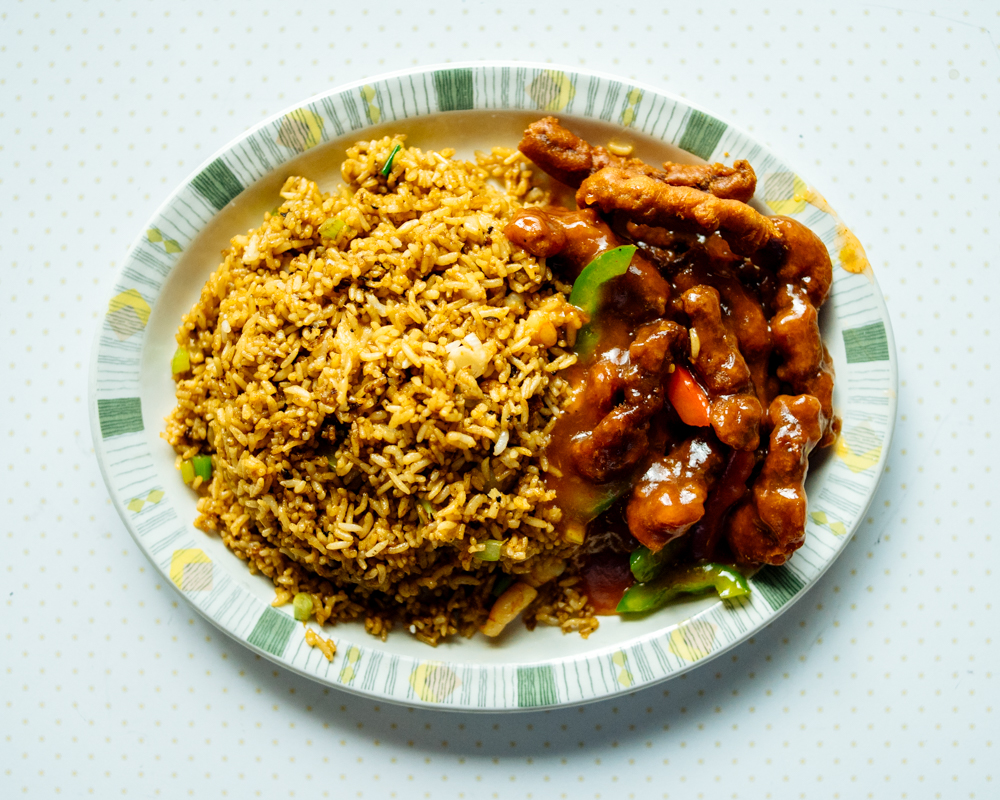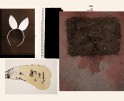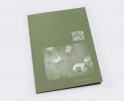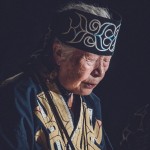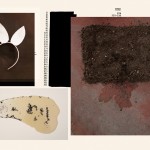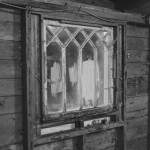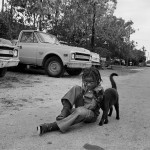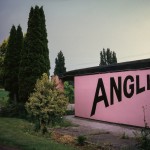Western Canada: Elyse Bouvier
One of my supervisors in Toronto said I should talk to this girl who is doing her MFA thesis on Chinese Westerns in Alberta. As someone budding to be an expert in the representation of rural communities in Western Canada I thought, ‘brilliant!’ This was Elyse Bouvier, a Calgary photographer who ended up exploring, in great detail, the very essence of rural food culture. Since then I’ve photographed, exhibited, and collaborated with Elyse, we are currently working on a project that looks at interesting and alternative gems in Alberta. We’ve had many conversations on food, culture, photography representation and identity in Western Canada. She was also part of the Imaginations special edition I co-edited where she collaborated with Dr. Lilly Cho on a piece called Recalibrating Intimacy. Note: The below conversation took place late one night over distant bourbons in Calgary, Ab and Mundare, Ab. For many communities in Western Canada it is hard to bridge the gap of distance.
Elyse Bouvier (1987) is a Western-Canadian photographer based in Toronto finishing a Master’s in Fine Art in Documentary Media at Ryerson University. She also holds a B.Comm from Mount Royal University (2010). Her current practice explores issues of community, memory, and place, with a particular fascination with how food intersects with cultural identity. Her most recent work, Royal Cafe, was exhibited in Toronto as part of Ryerson University’s DocNow Festival.
Royal Cafe
Royal Cafe is a photo-based documentary project that explores the prevalence of Chinese-Western cafes across small towns in rural Alberta. These cafes — diner-style restaurants caught in an ambiguous time period — reflect the identity of the communities they are in and are also indicative of a very Canadian culinary identity. Although difficult to define, the hybrid nature of Canadian identity, and the rural identity in particular, can be highlighted through the merging of two distinct cultures: Chinese and Western.
So I wanted to add a new dimension to your Royal Cafe, something not easily found from reading the project description or the viewing the series. Since I know the work well, having seen it develop while shooting with you in Alberta and having seen it exhibited in Toronto, I thought conducting a two-way interview around the topic of food and what that means for community in Western Canada would be a good start. So i’ll ask, what makes the Chinese Western the epitome of small town cuisine in Western Canada? Like why did it give me a a eureka-like moment when you first pitched it to me that made me think, “why hasn’t this been done yet?!”
I think there’s a few things that come to mind for me when I’m thinking about why they seem so quintessential to the small-town experience. First, it’s because they are there. You know this from your own travels across the west that many towns have a place like this so by their very presence they have become something familiar to us. As for your “eureka-like moment”, I get that a lot when I talk to people about the project, if they’ve grown up out west. I think it’s also linked to these ideas of driving great distances, as Western Canada is so spread out, that stopping in small towns to eat was de facto before Subways and Tim Hortons took over. The fact that they still remain popular eating spots in these towns may also be in part because of some sort of nostalgia for the “country,” for quaint places, and so many of these Chinese Western restaurants embody that feeling because they have remained largely unchanged for so long. But I’d also be curious to know why you had that response to the project, especially as you are intimately familiar with these places having driven to many towns across the west.
I guess I never thought specifically about the community function of a certain business. You’re almost doing a typology project about a small town staple; none more colourful and interesting than the Chinese Western. I’ve seen some bizarre stuff in them, welcoming time capsules. You’ll never see a modern one and if you do, you sure as hell don’t eat there. I want to come back to something you mentioned, that they’re popular eating spots, but as I recall all my ginger beef dinners in them its often quite empty. Think back to our two meals in Vulcan Alberta a few weeks ago, there was a convention in town and we were only ones there. 25 celsius, AC blasting inside and they’re empty. Where are all the bodies, what’s happening to the small town food experience in Western Canada?
You’re totally right, of course, that they aren’t busy and that the small town food experience is changing. I often wonder, “where do the people in this town eat?” If they’re close to the city, my guess is that they save their “dining out” experiences for trips into the city. Some of the restaurants I visited had a steady flow of takeout all night but that was it. It was rare to eat at a full restaurant but it did happen, and seemed more so further from the city. Perhaps, this is something of a generational shift. The young people are leaving town so they aren’t eating there and the older generation is more settled, eating out less, cooking at home to save money. You grew up in a small town, did you eat out a lot? Was it more common at one point?
My new mantra is ‘change is the only constant’ and so I think food culture in Canada is generally changing. People are no longer happy with meatloaf or steak sandwiches, they want something more. I know from being on the road i’m always looking for a veggie dish. Which is funny, going back to Vulcan, the first restaurant we stopped in didn’t have a single vegetable option, I couldn’t even get a side of vegetables! Deep-fry or bust. I think about the joke where a customer asks the server what they would recommend for to a vegetarian and the server replies, ‘to get the fuck out’. Rural spaces in general seem to be the last to adapt to change and so they’ll be the last to see that the trends in food culture have moved on, or am I wrong? Some change is happening, I saw a number of restaurants that now state they don’t use any MSG, which has been an interesting gastro witch-hunt with racialized roots, but is it too little too late?
Change is definitely happening, and faster and faster it seems. I note when I see a small town restaurant serving Indian curries or Thai food as that hasn’t really been the norm there. I love going to Black Diamond, Turner Valley, and Longview because they have this incredible, new food scene that’s happening there that’s very exciting. Lacombe has a great new place that friends of mine in Red Deer travel too. Not to mention all the little breweries and distilleries that are opening all over. So there is definitely change going on and the towns and restaurants that don’t adapt will definitely be left behind.
Those are good examples, but they’re also serviced heavily by nearby urban populations. And from my experience, this is not the case in other places in Western Canada. Those examples are merely the ‘golden child’ of the rural food scene in what is a network of hundreds of towns.
Oh definitely, especially with Turner Valley/Black Diamond, they’re connected to food scene happening in Calgary, Ab. But the further I get from the city the less change I see happening. So is the city’s culture influencing small towns near them enough for it to spread further? Is it online food culture and more travel that makes people want more variety in small towns? Do they actually want more variety or are we just projecting that because when we travel there we are craving vegetables?
As a researcher I continuously try to check my position and be reflexive. And I think you’re right, I am projecting. People in rural communities generally consider there food spots good when I wouldn’t, I’ve been spoiled by some of the best cuisine in the country, priced affordably by a saturated food market. Or perhaps they’re just enacting a century old form of boosterism.Because at the end of the day, these spaces are often quite empty.
But I also think that’s a bit of a tired debate, too. For a long time people were always saying that these small town Chinese restaurants were dying off, leaving, done. But they are still there. Sometimes I don’t know how they are still surviving but then I walk into a town and a restaurant I’ve never been in and it’s packed. I’m not sure I fully understand it either when they seem to feel so empty. In regards to some of my images though, I will say that a lot of the busier places I went to did not want me to photograph when it was busy, so I respected that. Which means that my photographs also enforce this notion that they are never busy. *I’m actually not sure it’s true that they’re not busy. Maybe I haven’t been on the right night of the week. I am often only passing through so I hate to claim that they are never busy because I have seen it.
Posts on Lenscratch may not be reproduced without the permission of the Lenscratch staff and the photographer.
Recommended
-
Shinichiro Nagasawa: The Bonin IslandersApril 2nd, 2024
-
The International Women in Photo Association Awards: Lorraine Turci: The Resilience of the CrowMarch 16th, 2024
-
The International Women in Photo Association Awards: Rayito Flores Pelcastre: Chirping of CricketsMarch 14th, 2024
-
The International Women in Photo Association Awards: Louise Amelie: What Does Migration Mean for those who Stay BehindMarch 12th, 2024
-
Brandon Tauszik: Fifteen VaultsMarch 3rd, 2024

